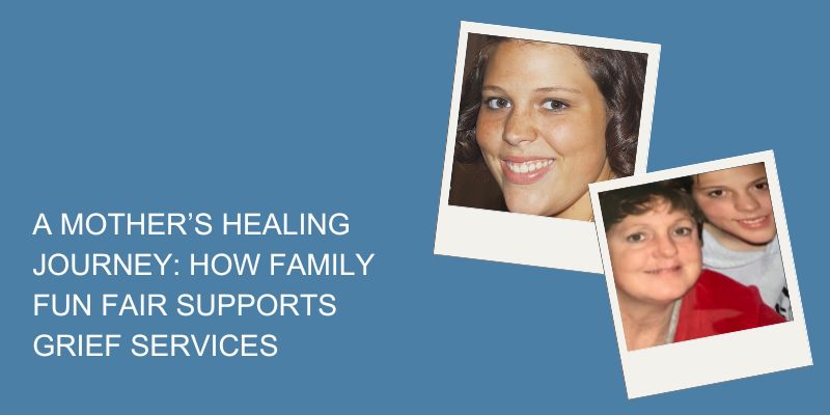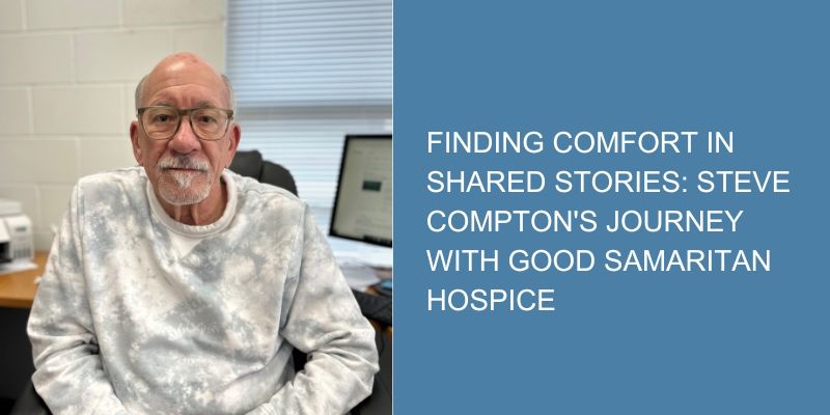On Air and In Rhythm
- Author: Kevin Watson
- Date Submitted: Jun 19, 2025
- Category: Cardiology
[1].jpg)
[1].jpg)
If you’ve ever tuned in to The Blazer’s Morning Brew on 91.1 FM, you’ve likely heard the familiar voice of Kevin Watson. As a Broadcasting Instructor at Vincennes University and the General Manager of the Blazer, Kevin is known for helping shape future media professionals—and for starting your day with energy and insight on the airwaves.
But behind the mic, Kevin has faced a different kind of challenge: managing a chronic heart condition that first revealed itself in 2018.
“I was at home the first time I went into AFib,” Kevin recalled. “I’ve been following up with Dr. (Vikash) Khurana ever since.”
Living in nearby Bridgeport, Illinois, Kevin says he’s always felt confident crossing the state line for the heart care he receives at Good Samaritan’s Dayson Heart Center. “I used to see Dr. Khurana twice a year, and now just annually, but anytime I need something, his nurse Audrey is quick to help. She even made calls on my behalf when I had trouble getting a referral for a specialist.”
Kevin’s trust in Good Samaritan was reaffirmed during a recent episode in early April when his heart unexpectedly began racing while he was at work. After checking his pulse and confirming a dangerously high heart rate with his home monitor, he drove himself to the Good Samaritan Emergency Department.
“I told them my history, and they didn’t waste any time. I was in triage quickly, and the nurse—Sarah, I think—was amazing,” Kevin recalled. “Calm, efficient, and reassuring. It meant a lot.”
Kevin received care in the ER from Dr. Michael Heron, who acted quickly to manage his AFib with medication. “My heart is stubborn,” Kevin joked. “It took two rounds of Cardizem to get it to respond.” Once his rhythm slowed, doctors determined he needed to be admitted for further treatment and monitoring.
Kevin was eventually moved to ICU, where he received around-the-clock attention and kindness. Dr. JR Majewski, one of the attending hospitalists, made an impression by checking on Kevin regularly. “He made it clear that the cardiology team was leading my case, but he made sure I was comfortable, not in pain, and had everything I needed. That kind of care stands out.”
Kevin also mentioned how impressed he was by the respiratory team, who ensured he could use a CPAP during his stay, and the nursing staff, particularly Daisy and student nurse Kwila, who worked side-by-side and showed exceptional professionalism.
The next day, Kevin underwent a cardioversion procedure to reset his heart rhythm. Dr. Khurana, his nurse practitioner, and Dr. Dalvir Gill walked him through the process, discussed all the options, and involved him in the decision-making.
“I told them, ‘You’re the experts, and I trust you,’” Kevin said. “They decided cardioversion was the best course for now—and it worked. My heart went back into rhythm on the first try.”
He also expressed appreciation for the anesthesiologist, Dr. Michael Dulin, whom he had seen before. “He talked me through the entire thing, was incredibly thorough, and made sure I was comfortable. I woke up without any complications, just like last time.”
Kevin was discharged the next day and continues to follow up with Dr. Khurana. He’s also working with the team to get in with an electrophysiologist to further evaluate his heart’s electrical system.
Reflecting on the care he received, Kevin said, “Everyone was not only professional but genuinely caring. I never felt like just a patient. They anticipated my needs and responded with compassion every step of the way.”
He’s also thankful for the proximity and quality of the care. “To have a place like this so close to home—it’s a huge relief. I didn’t need an ambulance or a long trip. I had someone helping me within minutes.”
And he didn’t want to forget the students: “The student nurses were fantastic. I told them they were welcome to observe. It’s exciting to think they’re learning in a place like this.”
Kevin’s experience is a powerful reminder of the impact compassionate, coordinated care can have—especially in the moments when it matters most.



